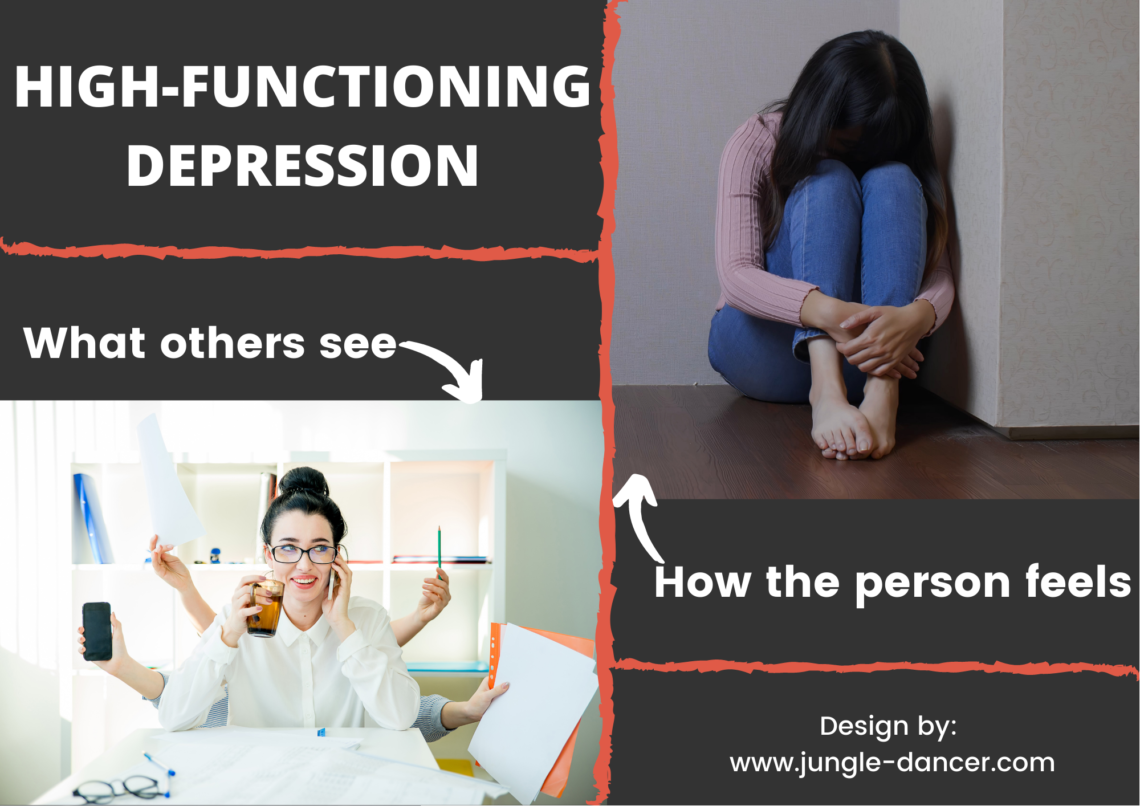
Imposter syndrome, feeling like you’re “faking it” when you accomplish things.Feeling lazy but also feeling incapable of doing more than you’re already doing.Desire to withdraw from social situations even if you force yourself to attend.

Other depression symptoms present in HFD include: For one thing, they have a loss of interest in daily activities, which is one of the primary criteria for a depression diagnosis. Generally, the symptoms of with functioning depression match those in other forms of depression. Recognizing the Signs and Symptoms of High Functioning Depression When a condition several interferes with a person’s ability to perform in school or at work, worsens their health, or impacts their finances or relationships, it’s likely to rise to a level of diagnosis. When diagnosing mental health conditions, professionals look at the impact that the condition has on a person’s ability to function. People who know that they struggle with HFD often feel like they have to “prove” their illness to others because they don’t fit that mental picture of the depressed person. “Functioning “simply isn’t the same as fully functioning. The degree of the impact may be subtle enough that someone on the outside doesn’t see it. High Functioning Depression interferes with relationships, work, school, health, and finances. People with functioning depression may hold down a steady, successful job, always look well put-together in public, and “not seem sad.” Because they don’t fit that image of “the depressed person” their condition may get overlooked.

While those things can certainly be present in depression, they aren’t present for everyone and not all of the time. Many people, asked to imagine a depressed person, picture clouds of sadness, constant tears, staying in bed for days on end, bingeing on comfort food, lack of attention to hygiene, and suicidal thoughts. They picture the worst moments that people with acute depression do sometimes deal with. They think it looks like a total inability to function. People often have a mental picture in their heads about what depression looks like. Why High Functioning Depression Often Gets Overlooked They may not even remember what it felt like to feel good. In contrast, people with high functioning depression typically feel depressed most of the time for years on end. People with an acute episode of major depression have a baseline of “normal” or “good” feelings that erodes away when they’re in depression. In fact, it has its own unique challenges. Make no mistake, HFD is just as hard to cope with as any other forms of depression. This is in contrast to Major Depressive Disorder which is more acute. It is also called Persistent Depressive Disorder (and was previously known as dysthymia). High functioning depression (HFD) is a chronic type of depression. It’s the idea that you can have the symptoms and struggles of a mental health issue and yet your challenge is mostly invisible to the outside world. Fewer people have heard of “high functioning depression.” But it is similar.

Many people have heard of high functioning anxiety, referring to people who struggle with anxiety but are able to present “okay” in public. Knowing the signs and symptoms can help you figure out what to do if you or a loved one are coping with this challenging mental health issue. They live for years with depression symptoms. People with high functioning depression suffer greatly. Just because you are typically able to get out of bed and present as “normal” to the world around you doesn’t mean that you’re not suffering. It’s common for someone, after revealing that they struggle with depression, to hear a reaction akin to, “I had no idea you were depressed!” Oftentimes, it’s because the person has high functioning depression.


 0 kommentar(er)
0 kommentar(er)
